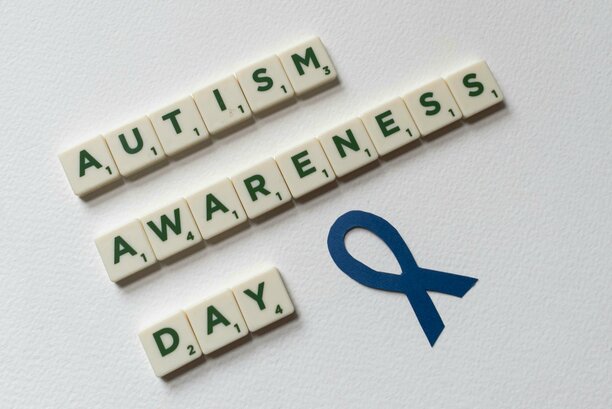From student to CEO: 'I want to show that anything is possible, even if you have autism'
Alumnus Dirk van Meer (24) advocates for greater understanding of autism on World Autism Awareness Day.
![[Translate to English:] [Translate to English:]](https://assets.w3.tue.nl/w/fileadmin/_processed_/c/f/csm_BvOF_2024_0319_AEV_license_TUe_Dirk_van_Meer_-_CORE_1__151f79b637.jpg)
April 2 is World Autism Awareness Day. Alumnus Dirk van Meer wants as an 'autistic person' to be an example to others. He is currently the CEO of spin-off CORE Changemakers, which once began as a student team but is now an organization of as many as 35 people.
ASD
He and his parents could never have imagined that he would one day lead an organization, as Dirk van Meer (24) has autism. Or, as it is now called, he has been diagnosed with Autism Spectrum Disorder (ASD), which means that the brain handles everything it sees, hears, smells and feels in a different way.
Van Meer is no longer a TU/e student now, but he still works with TU/e students on a daily basis, because what once began as a student team is now his company focused on developing techniques to better recycle waste.
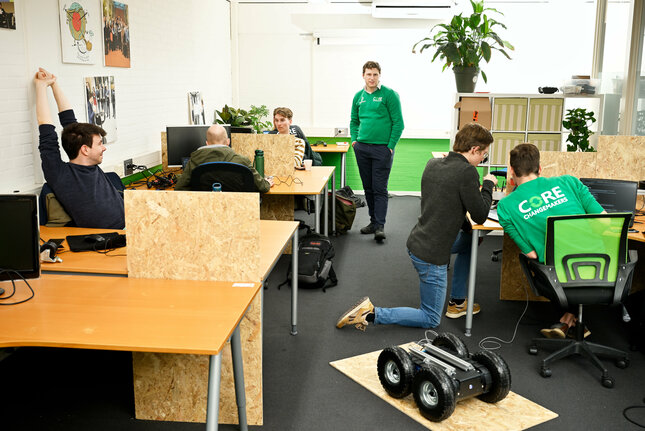
Structure
Van Meer: “I went through special education and, at home, everything was very structured. With cards and a whiteboard, my mother prepared me and my two brothers -also diagnosed with ASD- for what was going to happen."
Structure now helps him to run the business. He works with clear agreements and division of tasks so that everyone knows where he, she or they stand – something that Dirk says is good for everyone.
He runs the company with fellow former student Niels Bongers and his father. And his brother Jesse is now also working with him.
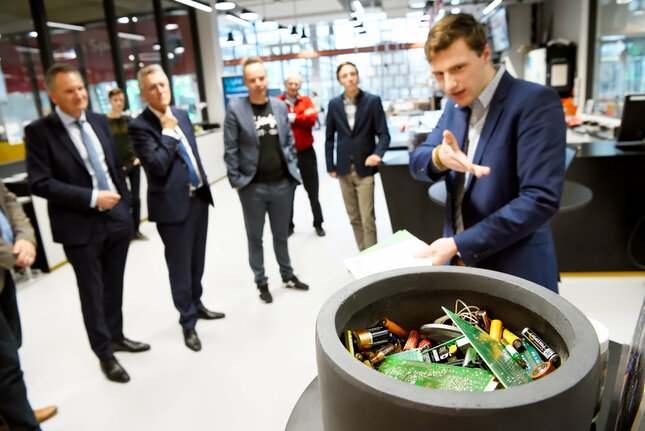
Misunderstood
According to Van Meer, his student days were challenging. He often felt misunderstood and opposed. “I see the world differently and I say that too. That’s not always appreciated, but I have no ill intentions.”
He continues: “Neurodiverse people like me actually look at things in a different way and therefore come up with different solutions. And that doesn’t always fit within the teaching system or vision of the teacher. A good researcher isn’t necessarily also a good teacher who is also attentive to students who deviate from the norm.” But according to Van Meer, it is actually very good to have different people in a team, because that's how you come to different insights and solutions.
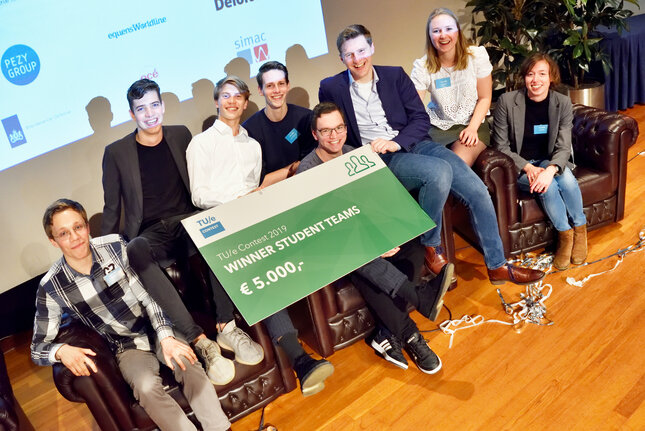
Depression
Van Meer suffered a lot from dark thoughts at the time and still does now and then. He has taught himself to deal with them. Building with Lego helps him to stop his thoughts for a while.
“For a moment, you want to be able to step away from the world like this. Not for good, but for a while until things calm down again."
Following ‘the rules’ of non-neurodiverse (neurotypical) people takes energy. "I’m sometimes in bed by 7 p.m., which is pretty early for a 24-year-old,” he jokes.
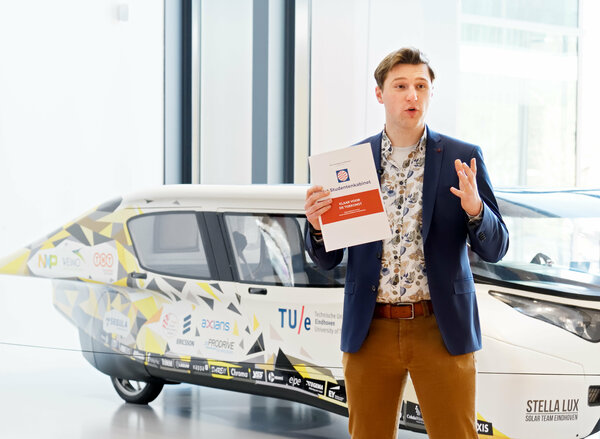
Student team
Joining a student team was his salvation: "collectively looking for practical solutions and coming up with things that don’t exist yet. And people are fine with it if it’s not your day."
With Team CORE, he worked on many projects, like a system to use AI technology to detect batteries among trash, thereby preventing waste fires. In addition, CORE developed a method to turn waste into basalt garden tiles.
Innovation Space
For a long time,innovation Space was somewhere that Van Meer felt very much at home. This is a learning place in which students, researchers, industry and societal organizations collaborate.
TU/e received the Dutch Higher Education Award for it, as well as an international award, the European Triple E Award. Innovation Space has now existed for five years.
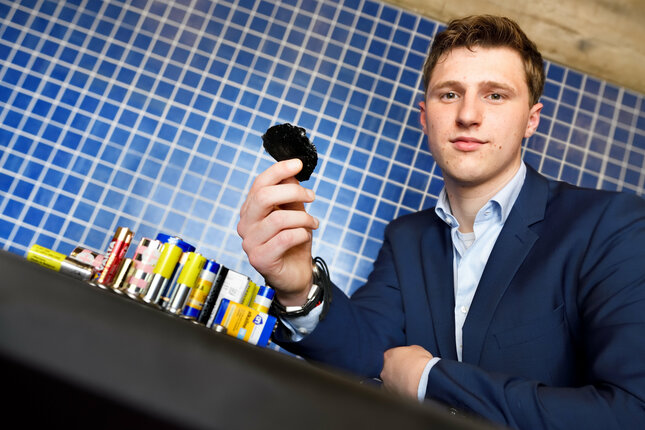
Innovation Space was the home base for Team CORE and Van Meer is still implementing what he learned there in his current company. There too, he works on circular business issues and is still “student-driven”, as he calls it. "From the curiosity that students are allowed to have without feeling the pressure of a commecial boss. We have no profit motive," Van Meer stressed.
Role model
Solving things and helping others is what drives him. So, in his company, he provides a workplace for students who are not getting along so well in other places. He wants to be the one who understands them and helps them with what they need.
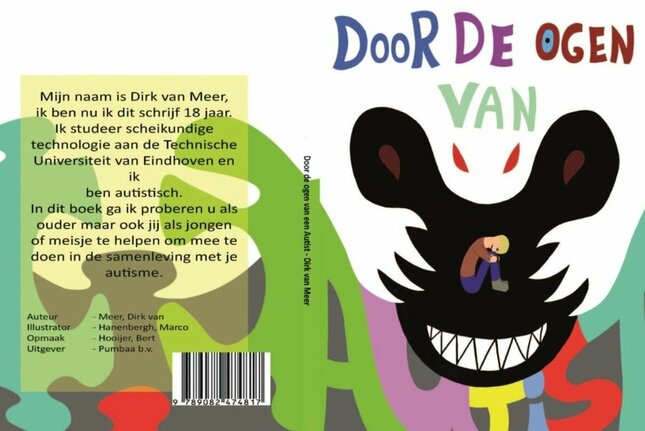
Sometimes, that is simply a low-stimulation place in which there are no distractions. Sometimes, it takes a little more time to jointly figure out what works best. Van Meer: “I come from a warm nest where there was attention to what I needed. My parents gave me a lot of support and guidance. But not everyone has that; I want to give them that.”
Van Meer wants more understanding of autism. For this reason, he gives lectures on how organizations can benefit from autistic employees and their unique contributions.This can be anything from an eye for detail, extremely creative to highly analytical thinking.
He also wrote a book, ‘Door de ogen van een autist’ (‘Through the Eyes of an Autistic Person’).
In 2021 he spoke about his work in our (Dutch) podcast Sound of Science.
Recognized training company
Since 2023, CORE Changemakers has held the official designation of recognized training company.
He is quite proud of that. It’s not only TU/e students who conduct research on recycling issues; students from Tilburg University, AVANS, SUMMA and Fontys also find a place there.
“I want to show that anything is possible, even if you have autism,” Van Meer concludes.
Source: tue.nl
